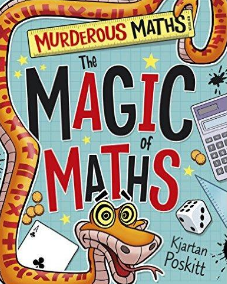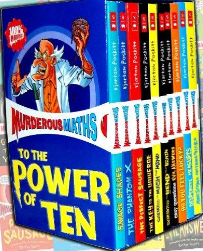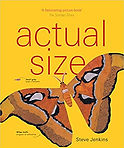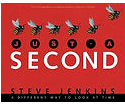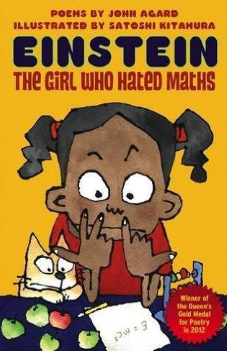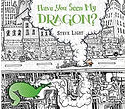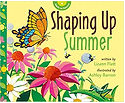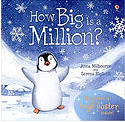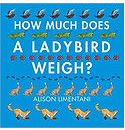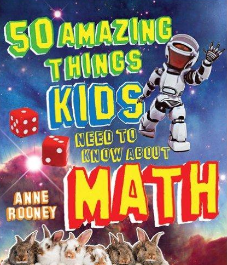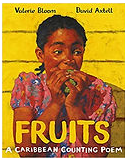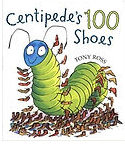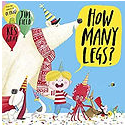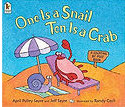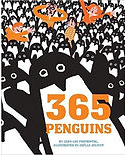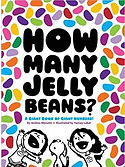Maths Mastery
St. Joseph's Subject Overview - Maths
Vision:
Our vision is for all children to think mathematically, demonstrate, deepen their conceptual understanding and problem solve with a belief that everyone has the potential to succeed.
Intent:
At St. Joseph’s we follow the Mathematics Mastery approach through the ARC programme, which has three key principles: conceptual understanding, mathematical thinking and mathematical language, with problem-solving at the heart of the curriculum. Instead of learning mathematical procedures by rote, we want pupils to build a deep conceptual understanding of concepts which will enable them to apply their learning in different situations. The habits of thinking mathematically are life-enriching as it is vital to be numerate to participate fully in society. Therefore, we ensure we make rich connections across mathematical ideas to develop those skills from EYFS to Year 6.
“At the centre of the mastery approach to the teaching of mathematics is the belief that all pupils have the potential to succeed. They should have access to the same curriculum content and, rather than being extended with new learning, they should deepen their conceptual understanding by tackling challenging and varied problems. Similarly, with calculation strategies, pupils must not simply rote learn procedures but demonstrate their understanding of these procedures through the use of concrete materials and pictorial representations.”
It is important that children are allowed to explore Maths and present their findings not only in a written form but also visually; to that end our school has adopted the CPA approach; concrete, pictorial, abstract. This will allow the children to experience the physical aspects of maths before finding a way to present their findings and understandings in a visual form before relying on the abstract numbers. Pupils have the opportunity to build on fluency and deepen knowledge throughout every lesson. All teaching staff at St Joseph’s attend staff meetings that regularly have a maths focus, which provide information on current thinking and introduces them to new teaching methodologies and ideas.
Implementation:
The Mathematics Mastery curriculum is cumulative, coherent and sequenced. This means that mathematical concepts that are taught earlier in the curriculum are revisited in the context of a new area of mathematics. Each school year begins with a focus on the knowledge, concepts and skills that have the most connections; such as, place value, addition and subtraction. These concepts are then applied and connected throughout the school year to consolidate learning.
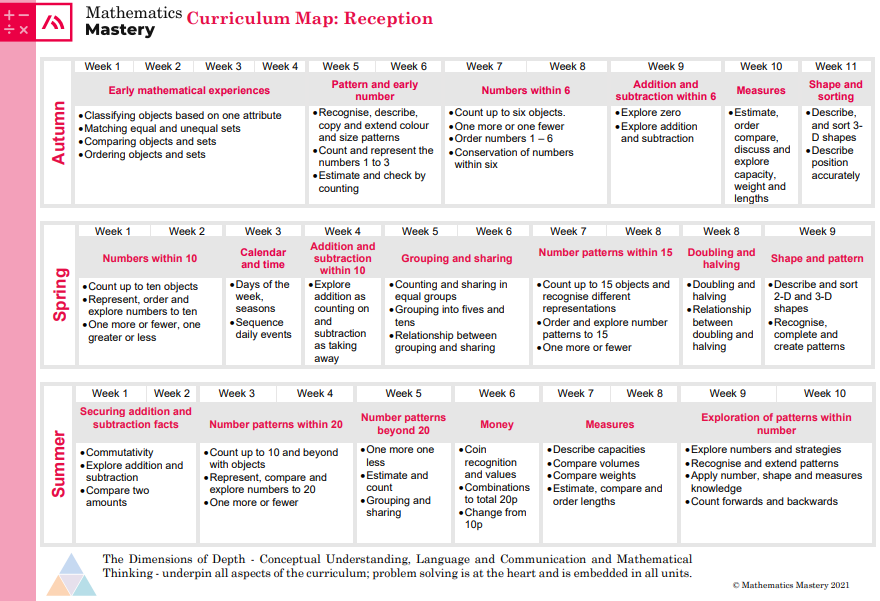
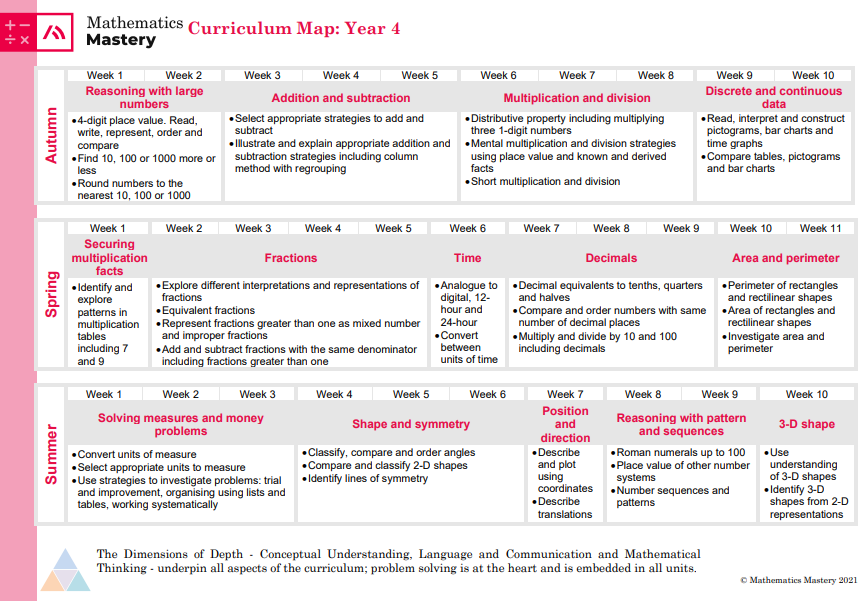
Please see the reception to Y6 curriculum maps, in full, further down the page.
The Mathematics Mastery programme has provided curriculum resources alongside professional development. The curriculum is created and adapted to allow all children to have inclusion through the use of scaffolds and challenges. All teaching staff have now been fully trained in implementing the approach in their classrooms ensuring consistency throughout school.
Example of original independent task:
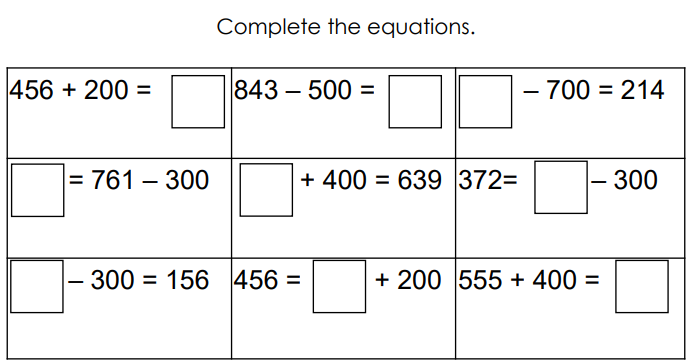
Example of adapted scaffolded task:
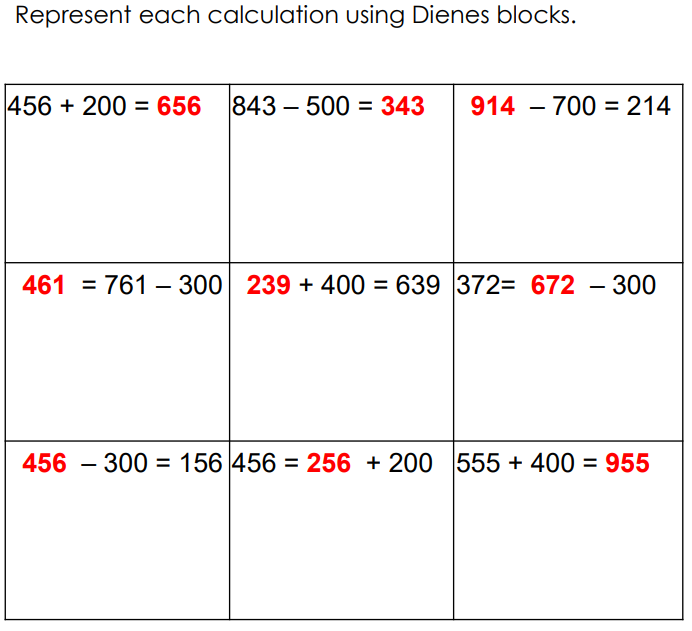
Example of adapted challenge task:
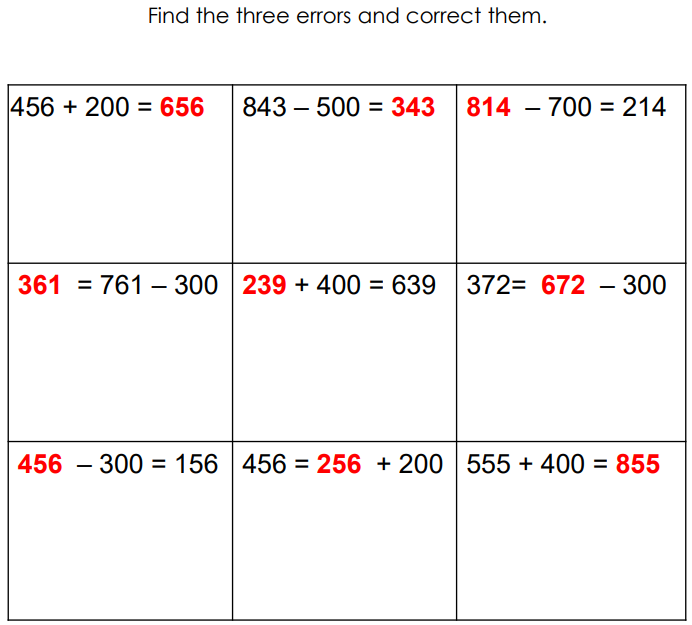
As Mathematical language is a key principle of our approach, at the start of each new topic, key vocabulary (star words) is introduced, revisited throughout lessons and embedded as the topic progresses.
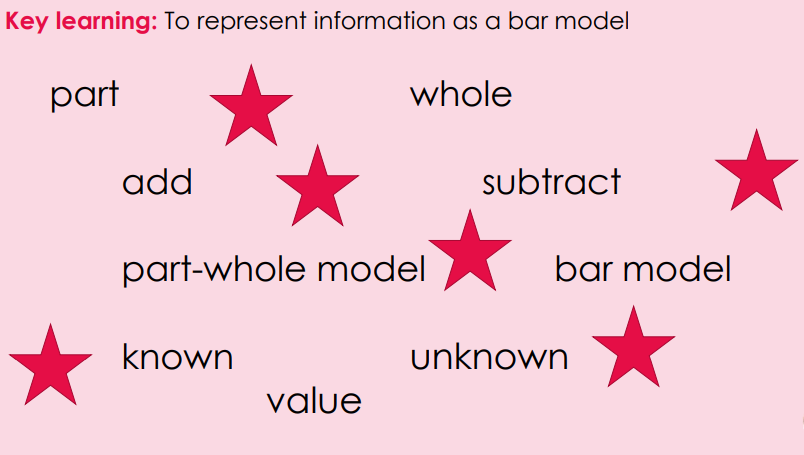
Children are taught through the C-P-A (Concrete – Pictorial – Abstract) approach. This allows teachers to show clear modelling and reinforce the learning that is achieved by going back and forth between the representations, building pupils’ conceptual understanding.
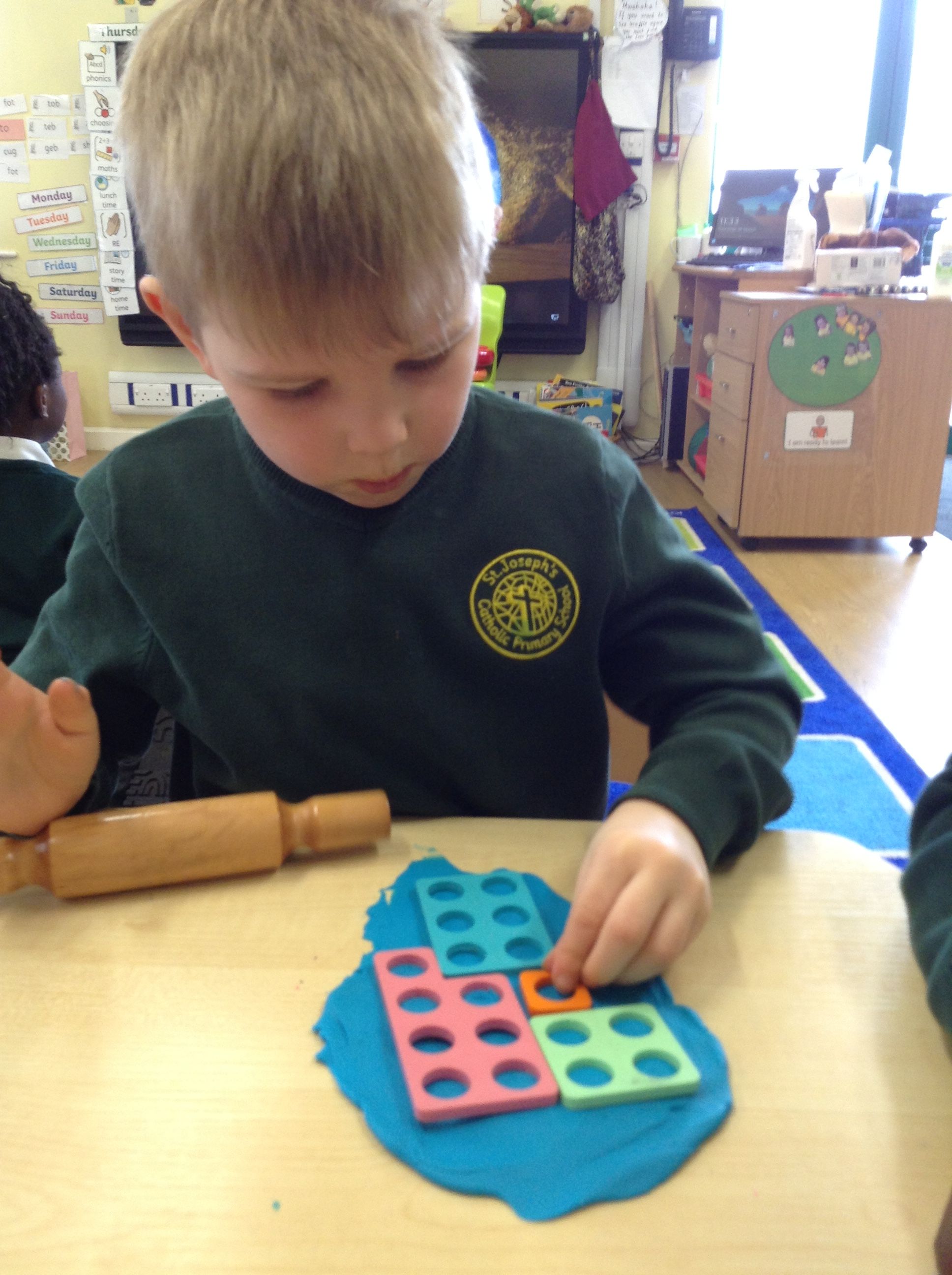
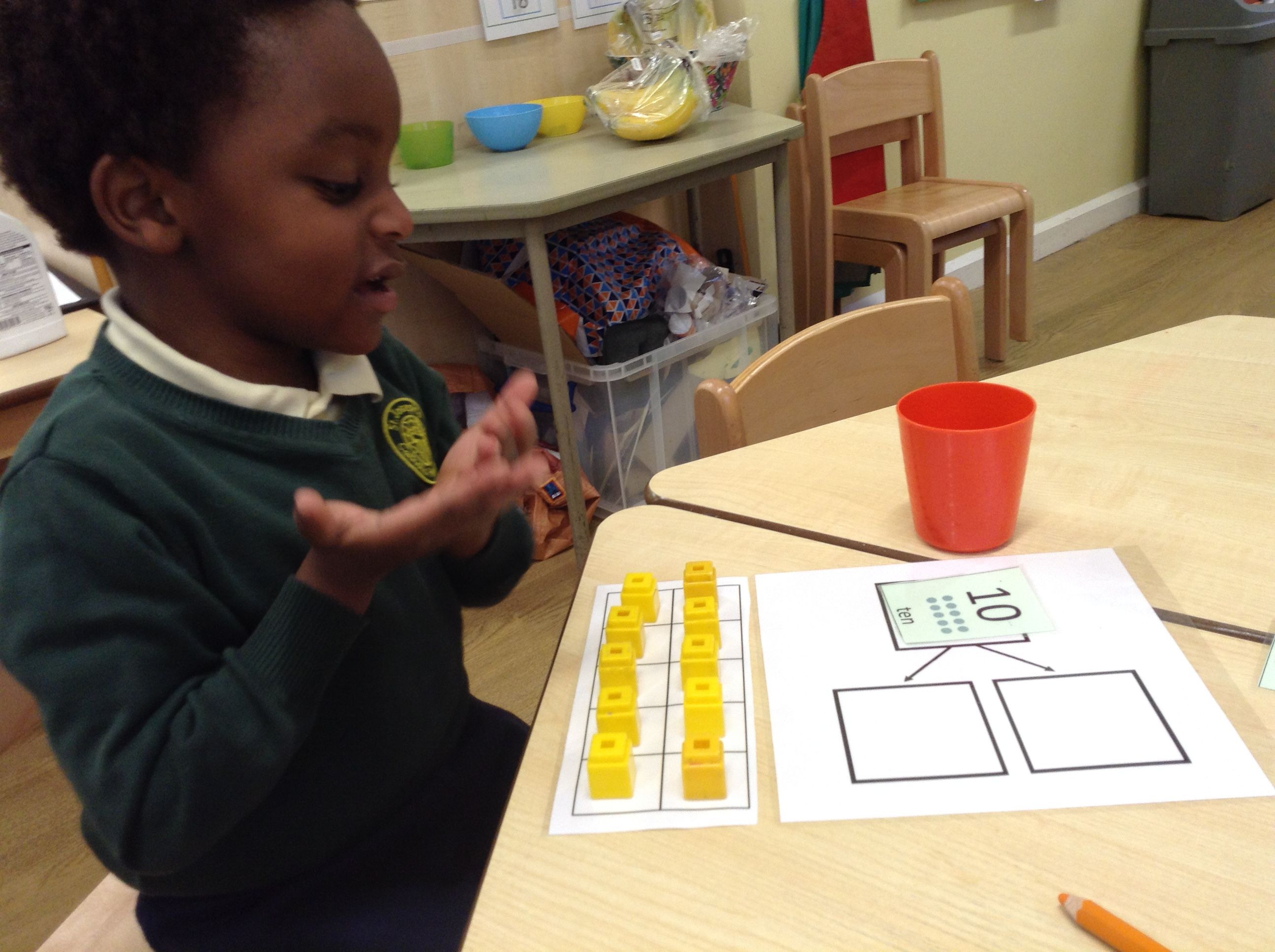
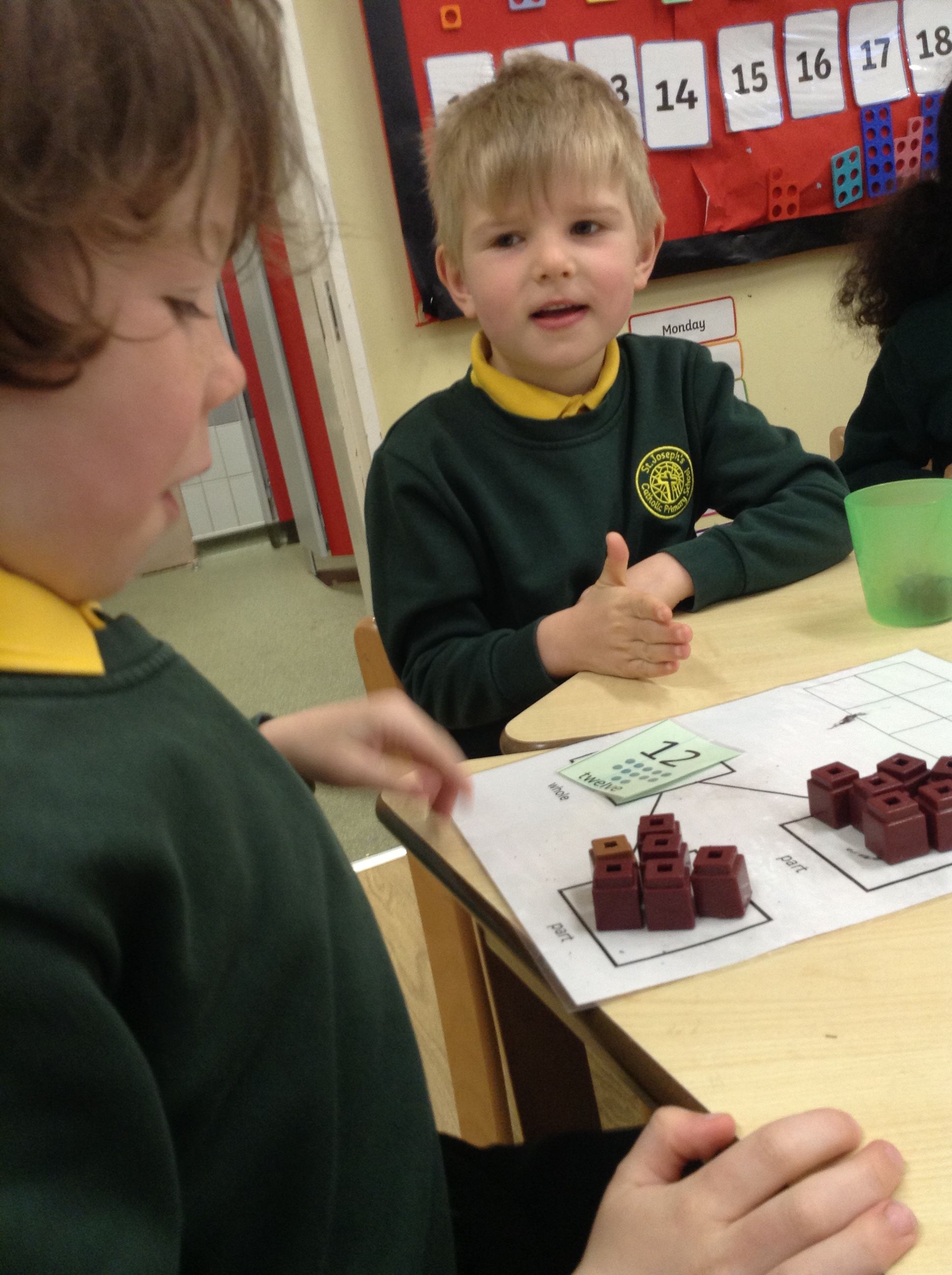
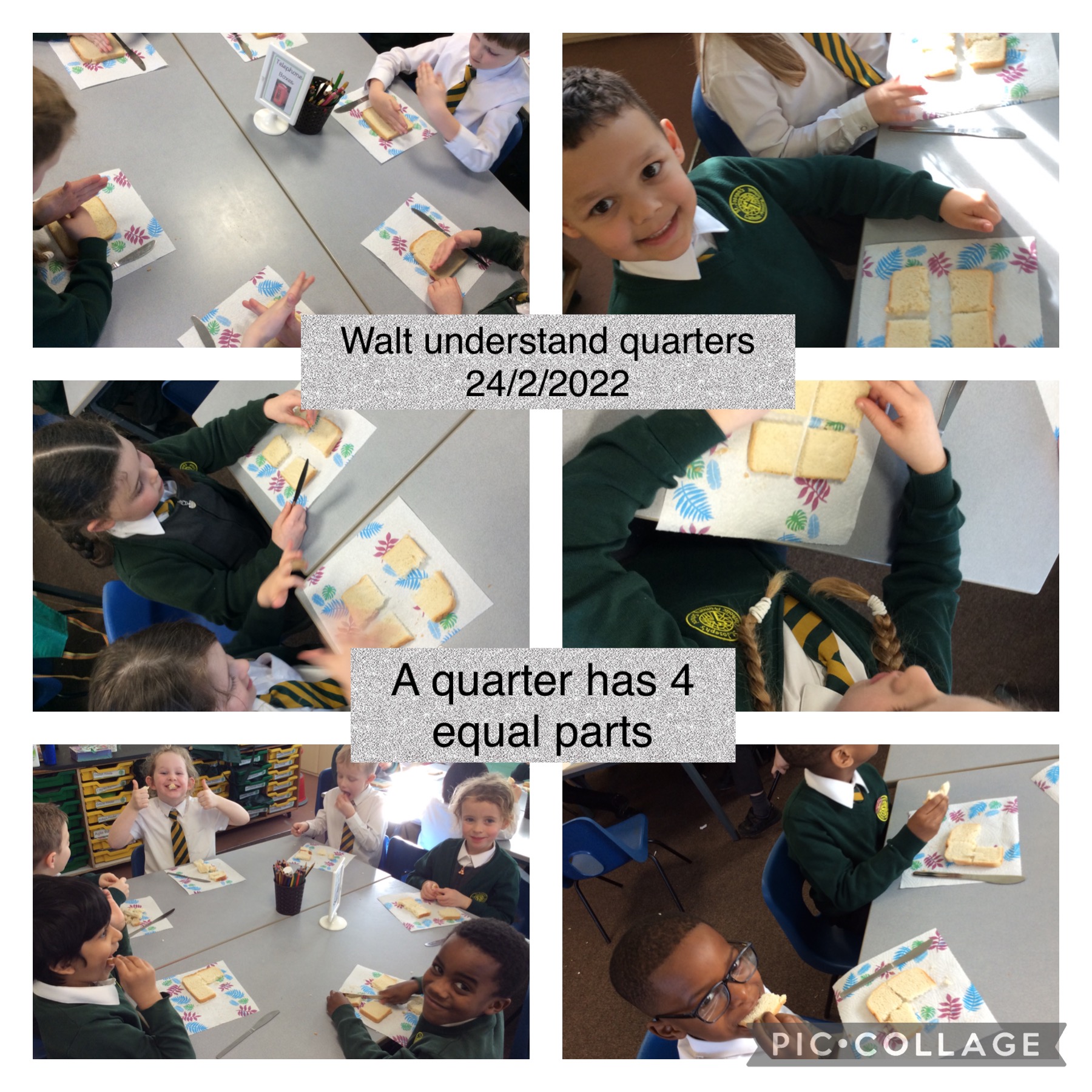
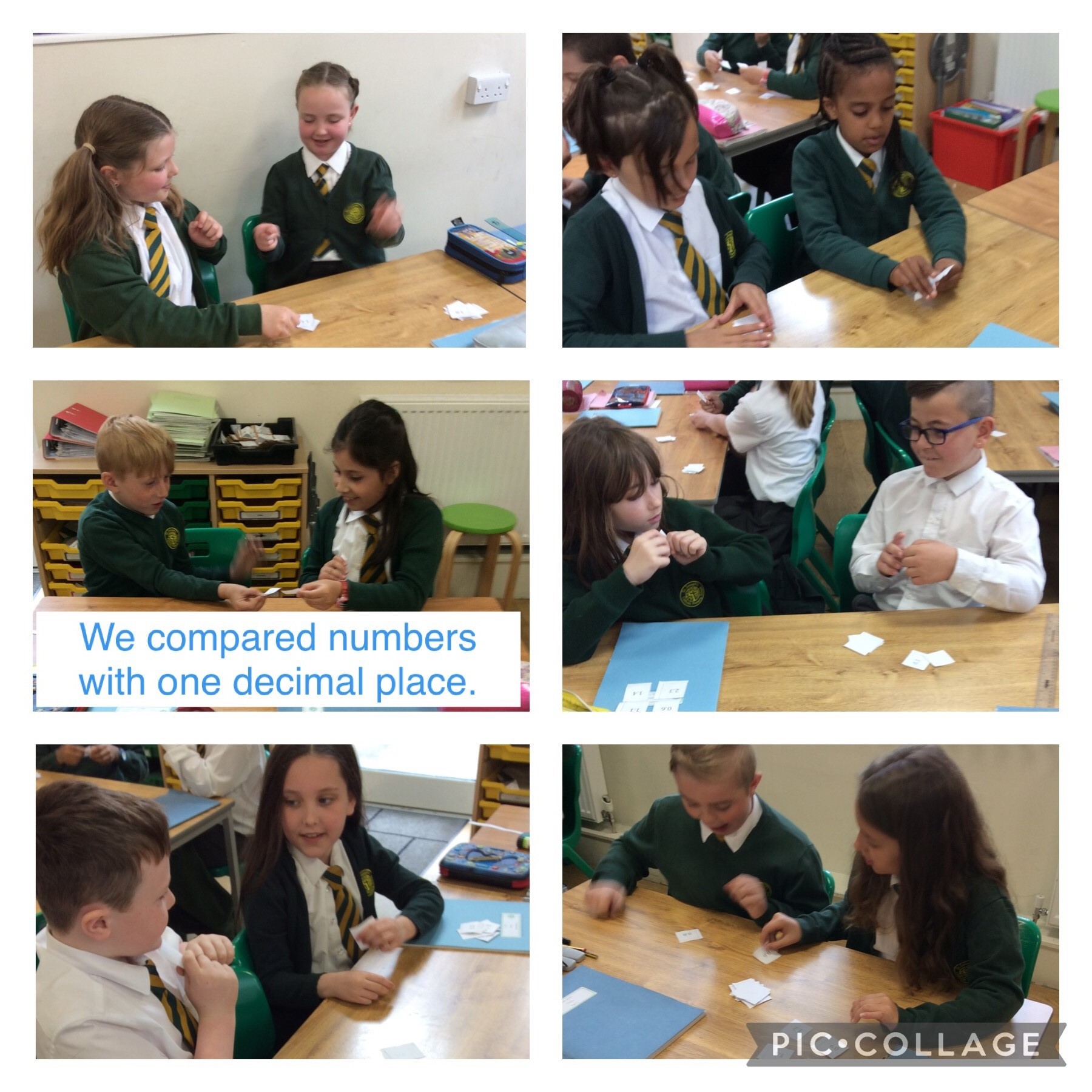
All teaching staff also use a six part lesson structure which allows the lesson to be pacey whilst the children acquire a new skill, apply the skill and deepen the skill within the lesson.
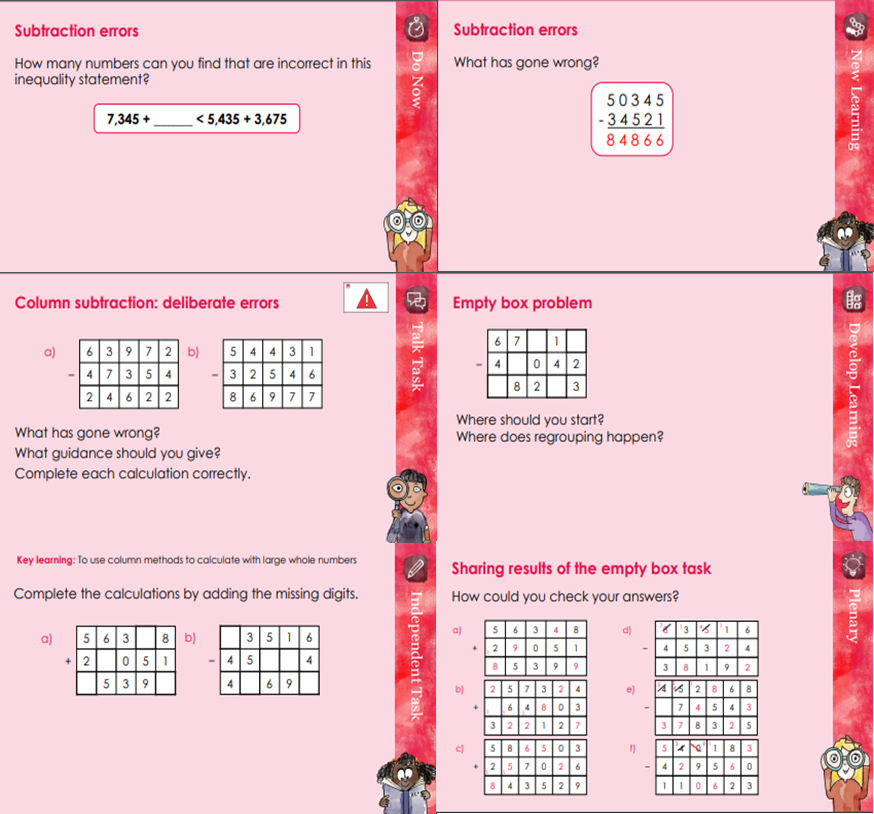
Maths Meetings are used on a weekly basis, using the maths meeting guidance, to give children the opportunity to rehearse and readdress key concepts enabling the information to stay in their long-term memory. The topics selected must be included each term for both fluency and because some key learning will not be revisited until a later term and requires ongoing consolidation.
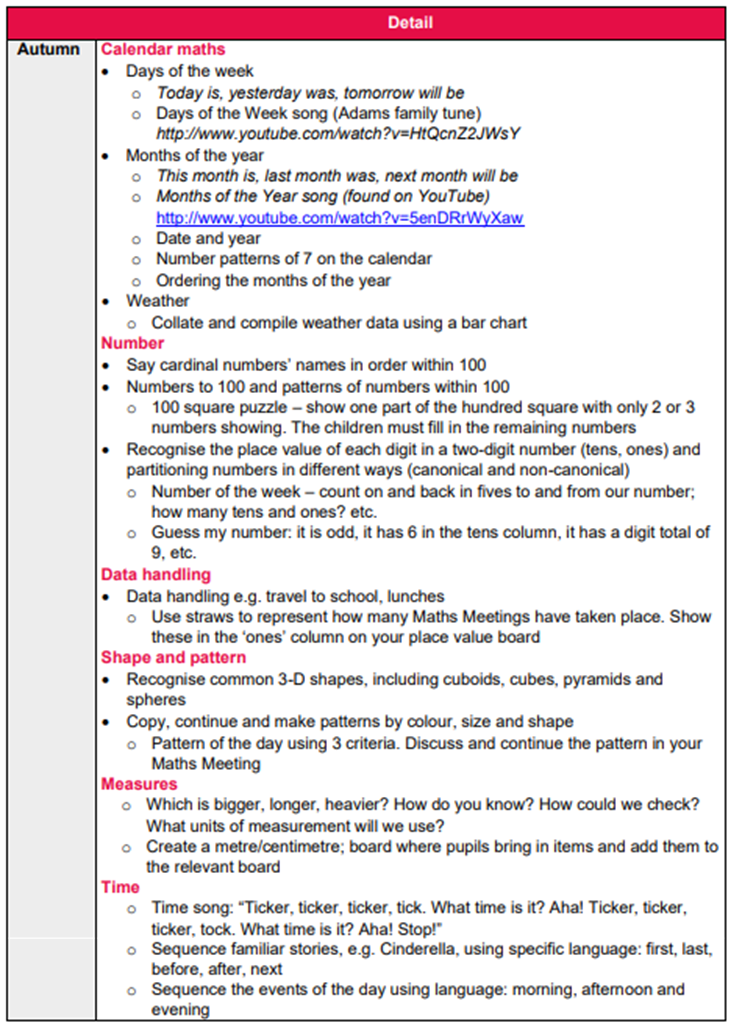
Feedback is given on children’s learning in line with our marking and feedback policy. Formative assessment within every lesson helps teachers to identify misconceptions, the children who are ready for a challenge or the children who need to access support through same-day interventions.
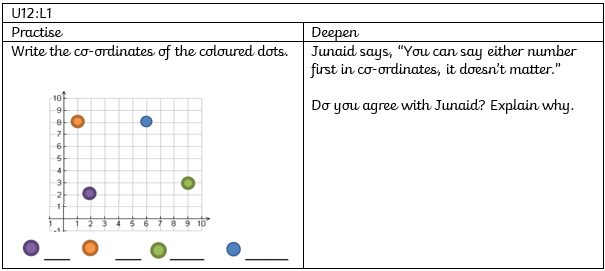
Impact:
The Mathematics Mastery approach allows children to develop their mathematical fluency whilst being able to apply this knowledge through reasoning and problem-solving. Therefore, children are able to move between different contexts and representations of maths flexibly. They are also able to show a concept in multiple ways, use mathematical language to explain their ideas and can independently apply the concept to new problems in unfamiliar situations.
Pupils need to be fluent, but that fluency must encompass understanding and be accompanied by reasoning and problem-solving.
Useful math's websites:
Times Table Rockstars - https://ttrockstars.com/
Learning with Parents - https://learningwithparents.com/
TopMarks - https://www.topmarks.co.uk/Search.aspx?Subject=16
Hit the Button - https://www.topmarks.co.uk/maths-games/hit-the-button
BBC Bitesize - https://www.bbc.co.uk/bitesize/subjects/z6vg9j6
NRICH - https://nrich.maths.org/primary
Recommended reads:
